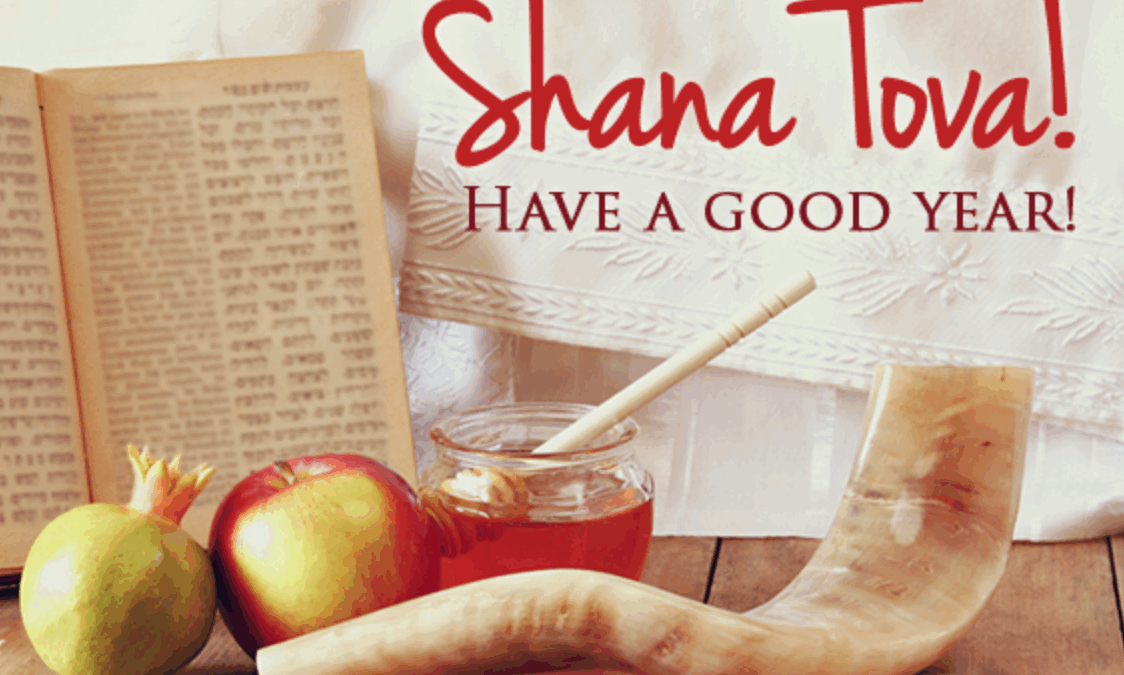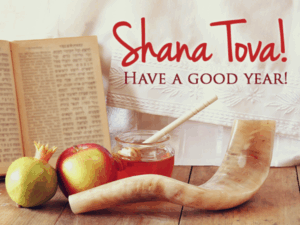Rosh Hashanah: A Time for Sweet Beginnings and Deep Reflection


Rosh Hashanah, the Jewish New Year, begins on the evening of Monday 22nd September and ends on the evening of Wednesday 24th September. It blends both a celebration of the world’s creation, reflect on the past year, and look ahead with hope and intention.
Rosh Hashanah It is a time when Jews celebrate the good things they have experienced in the previous year and also when they reflect on hopes and dreams for the coming year. It is a time to pause and take stock, to ask ourselves how we’ve lived, where we’ve fallen short, and how we can grow. This period initiates the Ten Days of Awe, a solemn stretch of time leading up to Yom Kippur, the Day of Atonement, during which Jews seek forgiveness, make amends, and commit to doing better in the year ahead.
The Power of Symbols
- Shofar (Ram’s Horn): The blowing of the shofar in synagogue is perhaps the most iconic ritual of Rosh Hashanah. Its piercing sound is meant to awaken the soul, stirring a sense of urgency to return to one’s best self. While the shofar is also blown at the end of Yom Kippur, it is most closely associated with Rosh Hashanah.
- Apples and Honey: A sweet tradition sees Jewish families dipping slices of apple into honey as a wish for a sweet and joyful new year. This custom likely dates back to medieval France, when the apples of the region were especially sweet.
- Round Challah with Raisins: Unlike the typical braided challah, Rosh Hashanah challahs are round, symbolizing the cyclical nature of the year and the continuity of life. The addition of raisins adds a touch of sweetness, in keeping with the holiday’s hopeful tone.
- Pomegranates: With their abundance of ruby-red seeds, this flower shaped fruit is a traditional food eaten during the holiday. Their plentiful seeds symbolize prosperity, good deeds (mitzvot), and the hope for a fruitful year. On the second night of Rosh Hashanah, it’s customary to eat a “new fruit”—often a pomegranate. The pomegranate is also a symbol of Rosh Hashanah because the abundance of seeds can represent prosperity or a desire to perform many mitzvahs (commandments) in the coming year.
- Rosh Hashanah Seder: In many Mizrahi and Sephardic Jewish communities, families hold a Rosh Hashanah seder, featuring a variety of symbolic foods like pumpkins, leeks, and beetroot. Each food is eaten with a special prayer or blessing for a positive year ahead.
The Book of Life
One of the central themes of Rosh Hashanah is divine judgment. It is believed that on this day, God opens several books, including the Book of Life, where the names of the righteous are inscribed. During the High Holy Days, Jews engage in prayer, repentance (teshuvah), and acts of charity (tzedakah) to influence their fate for the coming year. The goal? To be sealed in the Book of Life—a symbol of hope for a year filled with health, peace, and good fortune.
Embracing the Year Ahead
Rosh Hashanah is a time to cherish the sweetness in our lives while recognizing the areas where we can grow. It reminds us that every new year is a chance to reset, reconnect, and renew our intentions. Whether through the sound of the shofar, the taste of honey-dipped apples, or the quiet moments of self-reflection, the holiday invites us all to strive for a better, more meaningful year.
Shanah Tovah U’Metukah – wishing you a good and sweet year.